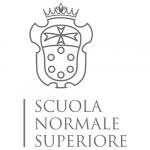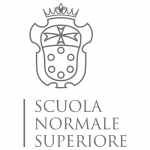News
22/02/2023
15 fully funded PhD positions
The Faculty of Political and Social Sciences at the Scuola Normale Superiore in Florence, Italy is pleased to announce
15 PhD fellowships beginning on November 1, 2023. The deadline for applications is April 13, 2023.
10/01/2022
SNS announces 14 fully-funded PhD positions
The Faculty of Political and Social Sciences at the Scuola Normale Superiore in Florence, Italy is pleased to announce
14 PhD fellowships beginning on November 1, 2022.
Publications
Journal Article - 2023
Emotions in Action: the Role of Emotions in Refugee Solidarity Activism
Chiara Milan
This article investigates the different types of emotions that result from participation in refugee solidarity activism, investigating how they change over time and to what extent they explain why individuals remain involved in action in spite of unfavorable circumstances.
Journal Article - 2023
Mutual aid and solidarity politics in times of emergency: direct social action and temporality in Italy during the COVID-19 pandemic
Lorenzo Zamponi
From the spring of 2020, the COVID-19 pandemic and the social distancing measures introduced created a series of social problems and needs that were partially addressed in Italy as well as in other countries by grassroots mutual aid initiatives. While many of these initiatives were strongly rooted in the Italian social movement and civil society landscape and the choice to engage in mutual aid activities was the result of long years of reflection and planning, the article shows how strongly the temporality of emergency affected the nature of these initiatives, their development and their outcomes, in particular with regard to the extraordinary number of people who volunteered and their relationship with politicisation processes.
Monograph - 2023
Populism and (Pop) Music
Manuela Caiani, Enrico Padoan
The book provides a detailed account of the links between production of popular culture to the rise of populism and contributes to studies on populism and popular culture in Italy, using a comparative approach and a cultural sociology perspective
Monograph - 2022
Labour conflicts in the digital age
Donatella della Porta, Riccardo Emilio Chesta, Lorenzo Cini
From Deliveroo to Amazon, digital platforms have drastically transformed the way we work. But how are these transformations being received and challenged by workers?
This book provides a radical interpretation of the changing nature of worker movements in the digital age, developing an invaluable approach that combines social movement studies and industrial relations.
Using case studies taken from Europe and North America, it offers a comparative perspective on the mobilizing trajectories of different platform workers and their distinct organizational forms and action repertoires.
Monograph - 2022
Resisting the Backlash: Street Protest in Italy
Donatella della Porta, Niccolò Bertuzzi, Daniela Chironi, Chiara Milan, Martín Portos & Lorenzo Zamponi
Drawing interview material, together with extensive data from the authors’ original social movement database, this book examines the development of social movements in resistance to perceived political "regression" and a growing right-wing backlash.
Journal Article - 2021
Populism between voting and non-electoral participation
Andrea Pirro & Martín Portos
The article focuses on a neglected aspect of populist mobilisation, i.e. non-electoral participation (NEP), and elaborates on the extent to which populist party voters engage politically outside the polling station. While challenging common understandings of populism as inherently distrustful and apathetic, and protest as an exclusive practice of the left, the study critically places NEP at the heart of populism in general, and populist right politics in particular.




